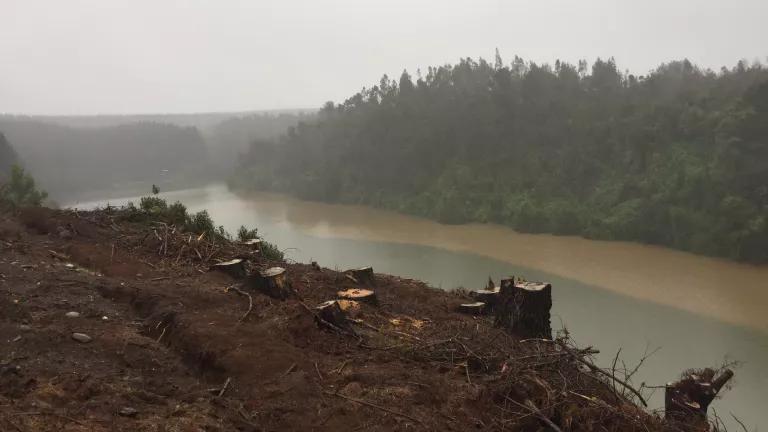Efficiency and Renewables: Energy Technologies that Obama and Piñera Should Pursue. Now.
Yesterday I wrote about why, now more than ever, Presidents Obama and Piñera should not pursue nuclear energy development in Chile during Obama’s trip to Santiago on March 21-22. Today, mixed messages are coming out of Chile about whether representatives from the two countries will sign an agreement to collaborate on nuclear energy on Friday as planned, or whether it will be postponed.
Ironically, in 2006, President Piñera himself signed a public declaration titled “Nuclear Energy, No Thanks,” highlighting the risks of nuclear energy and calling for the development of Chile’s remarkable non-conventional renewable potential. (His signature is circled in red.)

So, let’s follow the lead of Piñera of 2006 and discuss what energy developments Presidents Obama and Piñera should endorse together: energy efficiency and non-conventional renewable energy*. Several specific points should be the foci of their conversations in order to bring the most benefits to both countries:
- Chile needs to create a national energy policy, as the International Energy Agency recommended in its Chile: Energy Policy Review 2009. Chile currently has no comprehensive energy policy. Rather, the energy companies decide what type of generation plants they will build, and the government has very little oversight or policy direction. The result is that several large energy companies with narrow scopes of interest and capacity (namely large hydro and fossil fuels) dominate the energy sector, preventing diversified, distributed resources from contributing to the national grids.
- Chile should put efficiency back on the agenda. The country had made great strides in its efficiency sector, but it is clear that this administration does not prioritize efficiency. Official statistics say that Chile’s energy demand will double by 2020 and triple by 2030. If that is the case, efficiency should be the first priority of the government. Chile needs to create standards for the industrial, commercial, mining, new building and residential sectors – in particular, decoupling legislation, standards for high efficiency equipment (e.g. industrial motors) and appliances, and building codes.
- Chile must foster secure, long-term markets for non-conventional renewable energy projects. Without an even playing field, non-conventional renewables will simply not be able to grow robustly. The Chilean renewable energy law could create stable and long-term markets for renewable energy if it required that 20% of total power generation come from non-conventional renewable sources. In addition, Chile should address other roadblocks that prevent new companies from entering the market, notably in the transmission sector. Policies to incentivize direct procurement of both distributed and utility-scale non-conventional renewable energy projects by distribution companies as well as industrial players would also help build a secure marketplace that would allow a free market for non-conventional renewable energy to thrive.
- Chile needs energy security and independence; continued reliance on more poorly-planned large hydro and dirty coal plants will not achieve those goals. For the past two decades, Chile has experienced three energy crises, and is currently on the point of a fourth, due to an overinvestment in a few insecure and damaging energy resources–namely large hydro and natural gas. To allow the construction of new large hydro and coal-fired power plants would be counterproductive.
- Chile must consider the full environmental impacts of major energy proposals. It is crucial that environmental and public health concerns are thoroughly evaluated during the approval process for energy generation projects especially for large-scale hydropower, fossil fuel facilities and transmission lines.
Chile has all of the potential and more required to be a leader in non-conventional renewable energy and energy efficiency: remarkable natural resources, a capable human capacity, interest from foreign investors and the necessary institutions in place. My colleagues and I have discussed the benefits that strong growth in these sectors will bring to Chile – reduced greenhouse gas emissions, new employment, and a stable, diversified and modern grid. Benefits will come to the US by increasing exports in clean energy technology products and know-how, which will support the economy and employment.
This meeting between Obama and Piñera is truly an opportune moment for these two world leaders to put Chile’s energy future and the US’s relations with Latin America on the right track, bringing lasting benefits to both countries.
Piñera only has to look to his own words from six years ago to know how to begin: skip this talk of risky nuclear energy and focus on developing Chile’s own natural resources.
*In Chile, the term “non-conventional renewable energy” is used to exclude large hydro above 20MW from the category.


